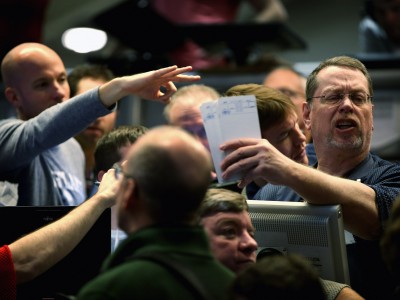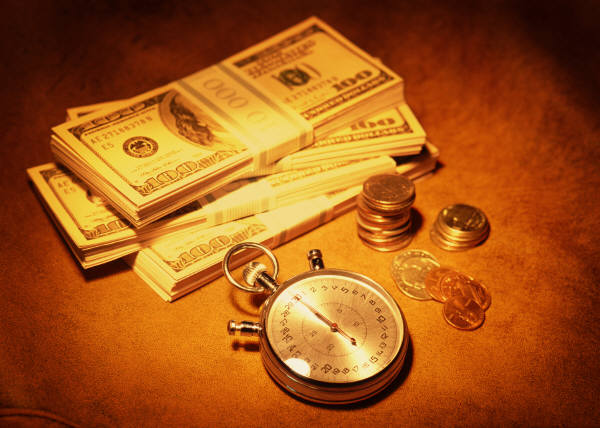Source: Business Insider
Traders shy away from extreme market volatility just when a wild market most needs them to take risks, according to new research.
This risk aversion and ‘irrational pessimism’ among bankers and fund managers is brought on by high levels of the stress hormone cortisol.
 “It is frightening to realise that no-one in the financial world – not the traders, not the risk managers, not the central bankers – knows that these subterranean shifts in risk appetite are taking place,” says John Coates, a former Wall Street derivatives trader.
“It is frightening to realise that no-one in the financial world – not the traders, not the risk managers, not the central bankers – knows that these subterranean shifts in risk appetite are taking place,” says John Coates, a former Wall Street derivatives trader.
Dr Coates, the co-lead of the research from the Cambridge Judge Business School, says stress could be an “under-appreciated” cause of market instability.
The study, published today in the journal Proceedings of the National Academy of Sciences, is the first to show that personal financial risk preferences fluctuate substantially, and these fluctuations may be linked to hormone response.
Almost every model in finance and economics, including those used by banks and central banks, rests on the assumption that traders’ personal risk preferences stay consistent across the market cycle.
In a previous study conducted with traders in the City of London, researchers observed that cortisol levels rose 68 per cent over a two-week period when market volatility increased.
In the latest study the researchers combined field work with lab work to test for the effects of elevated cortisol on financial risk-taking.
Pharmaceutical cortisol was given to 36 volunteers, 20 men and 16 women, aged 20 to 36 years, over an eight-day period.
The volunteers took part in lottery-style financial risk-taking tasks with real monetary pay-offs, designed to measure the preferences for risky gambles and the judgments of probability underlying their risk taking.
Chronically high and sustained levels of cortisol led to a dramatic drop in a willingness to take risks, with the ‘risk premium’ – the amount of extra risk someone will tolerate for the possibility of higher return – falling by 44 per cent.
“Any trader knows that their body is taken on roller coaster ride by the markets,” says Dr Coates.
“What we haven’t known until this study was that these physiological changes – the sub-clinical levels of stress of which we are only dimly aware – are actually altering our ability to take risk.”
The study also looked for differences between men and women.
While other researchers have argued that women are more risk averse than men, the current study found no differences between the sexes under normal circumstances.
However, the study did find that, when exposed to chronically-raised levels of cortisol, men placed too much importance on smaller risks while women did not.
During the Global Financial Crisis volatility in US equities spiked from 12 per cent to more than 70 per cent.
The researchers argue that it is reasonable to assume that such historically high levels of uncertainty would have caused stress hormones to rise far higher and longer than the team had been able to observe in their study.
Chronic stress may therefore have decreased risk taking just when the economy needed it most, when markets were crashing and needed traders and investors to buy distressed assets, they say.
Physiologically-driven shifts in risk preferences may be a source of financial market instability which hasn’t been considered by economists, risk managers and central bankers.
Dr Coates says:
“Traders, risk managers, and central banks cannot hope to manage risk if they do not understand that the drivers of risk taking lurk deep in our bodies. Risk managers who fail to understand this will have as little success as fire fighters spraying water at the tips of flames.”
Dr Coates, a Research Fellow in Neuroscience and Finance at the University of Cambridge, previously traded derivatives for Goldman Sachs and ran a trading desk for Deutsche Bank.









